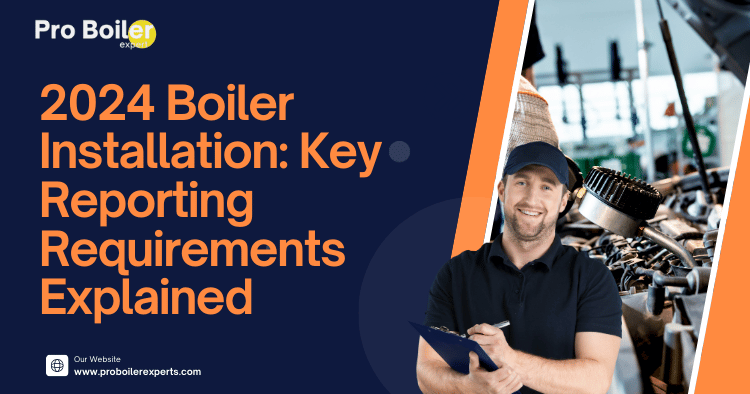Introduction
As we step into 2024, the landscape of boiler installation is evolving, especially when it comes to reporting requirements. Whether you’re a homeowner, contractor, or business owner, understanding these requirements is crucial for compliance and safety. In this article, we’ll break down the key reporting requirements for boiler installations to ensure you’re well-informed and prepared.
Understanding Boiler Installation Reporting Requirements
Boiler installation reporting requirements vary by location and are influenced by both national and local regulations. These requirements exist to ensure that installations are safe, efficient, and environmentally friendly. They also help local authorities keep track of energy consumption and emissions.
It’s essential to familiarize yourself with the specific reporting obligations in your area. The U.S. Department of Energy provides a wealth of resources that can help guide you in understanding your local requirements.
Key Regulations and Standards
Several regulations govern boiler installations. Here are some of the most important ones to consider:
| Regulation/Standard | Description |
|---|---|
| ASME Boiler and Pressure Vessel Code | Provides guidelines for the design, manufacturing, and maintenance of boilers and pressure vessels. |
| National Fire Protection Association (NFPA) | Outlines fire safety standards to reduce risks associated with boiler operations. |
| Environmental Protection Agency (EPA) | Focuses on emissions standards for boilers and other industrial equipment to protect air quality. |
Local Regulations
In addition to national standards, many states and municipalities have their own regulations.
It’s vital to check with your local building department for specific reporting requirements and guidelines that apply in your area. For insights on boiler installation regulations, you can refer to our detailed guide.
Documentation Needed for Compliance
When installing a boiler, certain documentation is required to demonstrate compliance with the relevant regulations. Here’s a list of essential documents:
- Installation Permit: Required before beginning any installation work.
- Inspection Reports: Must be completed by certified inspectors to ensure safety and compliance.
- Manufacturer’s Specifications: Documentation from the manufacturer detailing the design and operational parameters of the boiler.
- Maintenance Records: Ongoing maintenance logs that document regular servicing and repairs.
- Emissions Testing Reports: Required for certain types of boilers to ensure compliance with environmental standards.
Importance of Accurate Documentation
Accurate and complete documentation is crucial. It not only ensures compliance but also protects you in case of disputes or inspections. Keeping organized records can save you time and stress down the line.
For more on maintaining your boiler, check our insights on essential boiler maintenance tips.
Common Reporting Procedures
Understanding the common reporting procedures can streamline the process of boiler installation. Here’s a step-by-step guide:
- Pre-Installation Notification: Notify local authorities of your intent to install a boiler.
- Submit Required Documentation: Provide all necessary permits and documentation as outlined in local regulations.
- Schedule Inspections: Arrange for required inspections throughout the installation process.
- Complete Final Reporting: After installation, submit any final reports or documentation required by local authorities.
Example of a Reporting Timeline
| Step | Timeframe |
|---|---|
| Pre-Installation Notification | 2 weeks before installation |
| Submit Documentation | 1 week before installation |
| Schedule Inspections | During installation |
| Final Reporting | Within 30 days post-installation |
FAQs About Boiler Installation Reporting
1. What happens if I fail to meet reporting requirements?
Failing to meet reporting requirements can result in fines, delays in project completion, or even legal action. It’s best to stay informed and compliant to avoid these issues.
2. How can I ensure my installation meets local codes?
Consult with local building departments and hire certified professionals who are familiar with local codes.
Regular training and updates on local regulations can also help you stay compliant. For additional tips, explore our article on top tips for choosing the right boiler installer.
3. Are there any resources for further information?
Yes! The U.S. Department of Energy, EPA, and local building departments are excellent resources for obtaining the latest information on reporting requirements.
Conclusion
In 2024, understanding the reporting requirements for boiler installations is more critical than ever. By staying informed and organized, you can ensure a smooth installation process that complies with all necessary regulations.
Remember, when in doubt, consult with professionals and local authorities to clarify any uncertainties. Happy installing!
This article provides a comprehensive overview of the reporting requirements for boiler installations in 2024. By adhering to these guidelines, you can ensure compliance and contribute to a safer and more efficient energy future. For further insights into different boiler types and their benefits, be sure to check out our articles on the benefits of choosing combi boilers and the advantages of condensing boilers.





